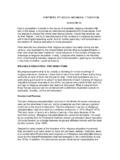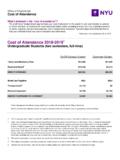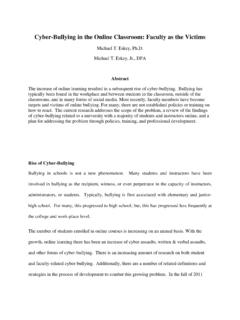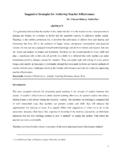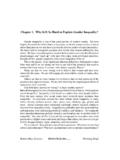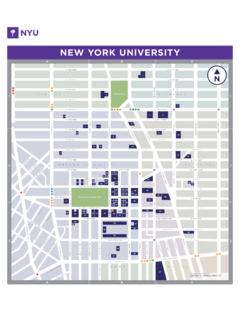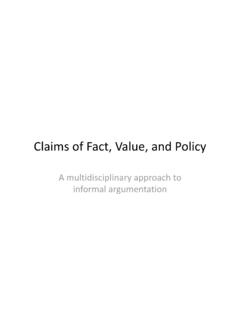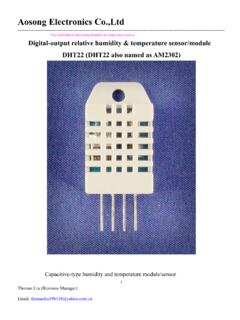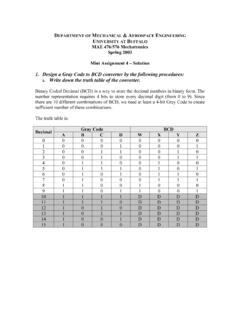Transcription of M- DSM-r e s - New York University
1 2012 American Psychiatric Association. All Rights Reserved. See Terms & Conditions of Use for more information. DSM-IV and DSM-5 Criteria for the Personality Disorders trauma). Narcissistic Personality Disorder Narcissistic Personality Disorder DSM-IV Criteria DSM-5 Criteria - Revised June 2011 A. A pervasive pattern of grandiosity (in fantasy or behavior), need for admiration, and lack of empathy, beginning by early adulthood and present in a variety of contexts, as indicated by five (or more) of the following: 1. Has a grandiose sense of self-importance ( , exaggerates achievements and talents, expects to be recognized as superior without commensurate achievements). 2. Is preoccupied with fantasies of unlimited success, power, brilliance, beauty, or ideal love.
2 3. Believes that he or she is special and unique and can only be understood by, or should associate with, other special or high-status people (or institutions). 4. Requires excessive admiration. 5. Has a sense of entitlement, , unreasonable expectations of especially favorable treatment or automatic compliance with his or her expectations. 6. Is interpersonally exploitative, , takes advantage of others to achieve his or her own ends. 7. Lacks empathy: is unwilling to recognize or identify with the feelings and needs of others. The essential features of a personality disorder are impairments in personality (self and interpersonal) functioning and the presence of pathological personality traits. To diagnose narcissistic personality disorder, the following criteria must be met: A.
3 Significant impairments in personality functioning manifest by: 1. Impairments in self functioning (a or b): a. Identity: Excessive reference to others for self-definition and self-esteem regulation; exaggerated self-appraisal may be inflated or deflated, or vacillate between extremes; emotional regulation mirrors fluctuations in self-esteem. b. Self-direction: Goal-setting is based on gaining approval from others; personal standards are unreasonably high in order to see oneself as exceptional, or too low based on a sense of entitlement; often unaware of own motivations. AND 2. Impairments in interpersonal functioning (a or b): a. Empathy: Impaired ability to recognize or identify with the feelings and needs of others; excessively attuned to reactions of others, but only if perceived as relevant to self; over- or underestimate of own effect on others.
4 B. Intimacy: Relationships largely superficial and exist to serve self-esteem regulation; mutuality constrained by little genuine interest in others experiences and predominance of a need for personal gain B. Pathological personality traits in the following domain: 1. Antagonism, characterized by: a. Grandiosity: Feelings of entitlement, either overt or covert; 2012 American Psychiatric Association. All Rights Reserved. See Terms & Conditions of Use for more information. DSM-IV and DSM-5 Criteria for the Personality Disorders 8. Is often envious of others or believes that others are envious of him or her. 9. Shows arrogant, haughty behaviors or attitudes. self-centeredness; firmly holding to the belief that one is better than others; condescending toward others.
5 B. Attention seeking: Excessive attempts to attract and be the focus of the attention of others; admiration seeking. C. The impairments in personality functioning and the individual s personality trait expression are relatively stable across time and consistent across situations. D. The impairments in personality functioning and the individual s personality trait expression are not better understood as normative for the individual s developmental stage or socio-cultural environment. E. The impairments in personality functioning and the individual s personality trait expression are not solely due to the direct physiological effects of a substance ( , a drug of abuse, medication) or a general medical condition ( , severe head trauma). Obsessive-Compulsive Personality Disorder Obsessive-Compulsive Personality Disorder DSM-IV Criteria DSM-5 Criteria - Revised June 2011 A.
6 A pervasive pattern of preoccupation with orderliness, perfectionism, and mental and interpersonal control, at the expense of flexibility, openness, and efficiency, beginning by early adulthood and present in a variety of contexts, as indicated by four (or more) of the The essential features of a personality disorder are impairments in personality (self and interpersonal) functioning and the presence of pathological personality traits. To diagnose obsessive-compulsive personality disorder, the following criteria must be met: A. Significant impairments in personality functioning manifest by: 1. Impairments in self functioning (a or b): a. Identity: Sense of self derived predominantly from work or productivity; constricted experience and expression of
